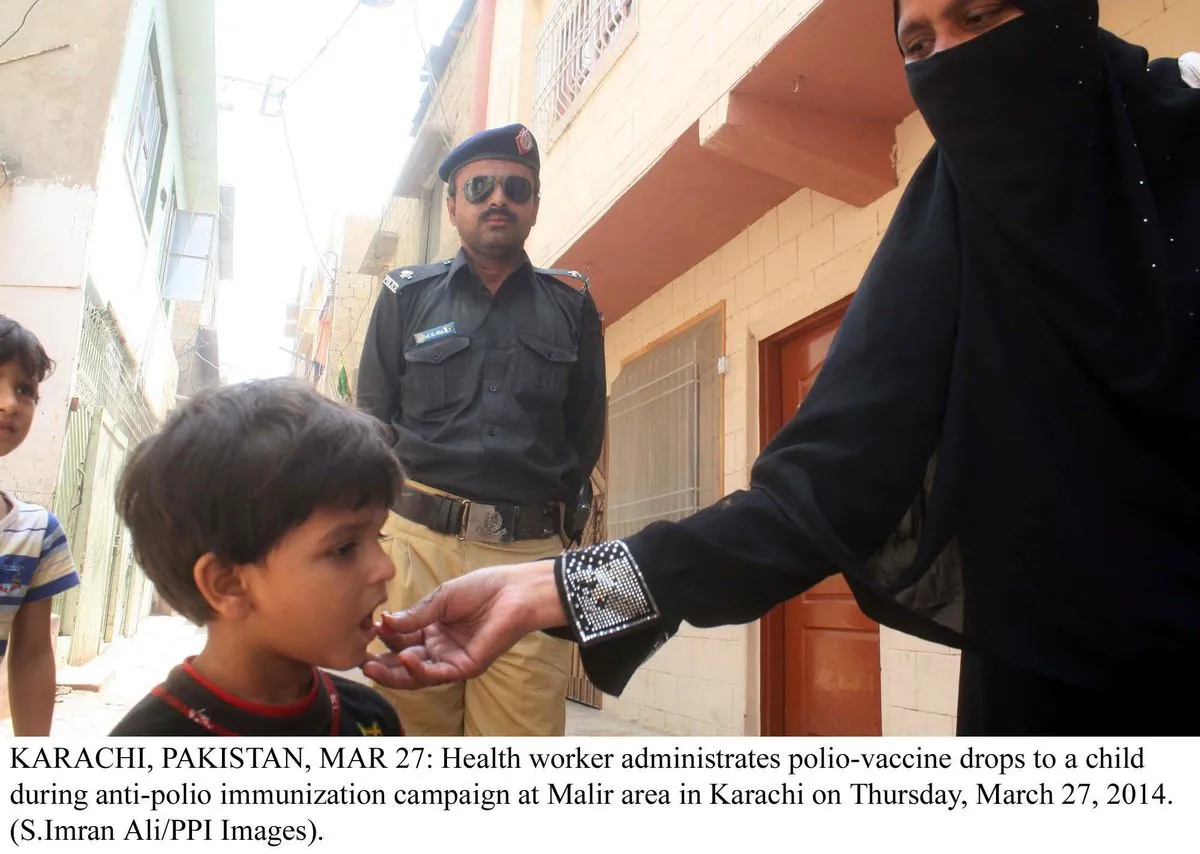In Pakistan's northwestern regions, polio vaccination efforts face a growing challenge as communities leverage the global eradication campaign to address local grievances. This trend has emerged as a significant obstacle in one of the last two countries where polio remains endemic.
Zeeshan Ali, a resident of a Kuki Khel tribal village, recently led a boycott of polio vaccinations. The villagers' demands were not rooted in conspiracy theories, but rather in frustration with perceived government neglect. Ali stated, "We do care for our children, but we also know that the government concedes to our demands only when we stay away from polio drops."
These boycotts have become increasingly common, with 218 active cases reported in Khyber Pakhtunkhwa province in January 2023 alone. Demands range from basic services like electricity and water to job creation and resettlement of displaced families.
Local officials, like commissioner Syed Motasim Billah Shah, argue against linking vaccination to such demands. "The people shouldn't link polio vaccination with demands like electricity and gas supply and construction of roads because such an attitude compromises the health of their children and their future," Shah explained.
The $1.1 billion annual global polio eradication program has made significant progress since its inception in 1988, reducing cases worldwide by over 99%. However, Pakistan's recent setbacks highlight the challenges that remain. After going more than a year without detecting a case in 2022, the country has since reported 18 cases in 2024, including one in the capital, Islamabad.
Compounding these issues are persistent security threats. So far this year, 17 health workers have been killed and 39 wounded during vaccination campaigns. This danger has led some vaccinators to falsify records rather than risk confrontations.
"We cannot walk freely during the house-to-house campaign due to threats by militants. In most cases, our workers mark the fingers of children without vaccinating them. In this way, they claim vaccination in papers and escape the parents' wrath."
The global eradication effort also faces challenges beyond Pakistan's borders. A 2016 decision to remove type 2 poliovirus from the oral vaccine has led to unexpected outbreaks of vaccine-derived polio, paralyzing over 3,300 children since the switch.
As Pakistan and the global community work to overcome these obstacles, the complex interplay of local demands, security concerns, and public health imperatives continues to shape the fight against polio. The success of this effort will depend on addressing not only the virus itself but also the underlying social and economic factors that fuel resistance to vaccination campaigns.
